2055 Hrs GMT
London
Sunday
18 July 2010
Editor © Muhammad Haque
The BHANGEELAAR! Campaign has been vindicated. Again. This is based on the latest bragging by the Guardian's blogger and the counterpart on the Daily Telegraph
A 'directly elected' ' executive' 'mayor' at the expense of democratic accountability in Tower Hamlets, is being promoted by the two ‘blogger’ representing the agendas associated with ken Livingstone [Guardian - Dave Hill] and the [London] incumbent Boris Johnson [Daily Telegraph - Andrew Gilligan].
Gilligan of course has an additional role; if the ‘comments’ attached to his blog is any guide. These comments so far are dedicated to represent the very clear interests opposing Muslims!
How Mr Gilligan has achieved that position is a subject warranting a through study in its own ‘wrongs’.
That study may take place later.
But for the records, we reproduce both Dave Hill’s ‘update’ and Andrew Gilligan’s diversionary item.
First DAVE Hill
Tower Hamlets: Labour produces its intriguing new mayoral shortlist
(1)
Tweet this (11)
Comments (4)
I brought you up to speed last week about Labour's decision to re-run its process for shortlisting contenders to become the first executive mayor of Tower Hamlets. The names on that new shortlist emerged yesterday afternoon.
The original had contained three: the borough's former leader and current London assembly member John Biggs, and two councillors: Shiria Khatun and Sirajul Islam. Both Biggs and Khatun have made it on to the second shortlist too, while Islam has not. They've been joined by three others, all of whom were unsuccessful last time. They are health service manager Rosna Mortuza, the Council's present leader Helal Abbas and another previous leader, Michael Keith.
If the new shortlist doesn't provoke further accusations of foul play, this won't be Tower Hamlets. Lutfur Rahman, the leader who preceded Abbas, has again been excluded, and it will be interesting to see how he responds to this second rebuff given that it was his complaint that led to the re-run in the first place. I'd suggest that a public expression of shocked surprise is not a viable option.
The selection of Michael Keith is fascinating because he led a campaign against the borough's adopting a mayoral system in the first place on the grounds that it would create division in the community (this view inspired an unfriendly response from a Mr Ken Livingstone, with unfortunate consequences for the latter).
The inclusion of Abbas suggests the battle could now be closer than some observers had predicted it would have been. Biggs had been considered a strong favourite, but Abbas and indeed Keith have, like him, leadership experience. That is not to discount the chances of the two women in the race. Who knows which way this contest will turn out?
I've previously spoken to two of the five on the new shortlist about their view of the borough and how they'd go about being its mayor - Biggs and Mortuza. I would mind carrying interviews with the other three either, but with voting to take place on 31 July, I'm not sure if there's time. We'll see.
Footnote: The latest development in the Labour selection story has, as I mentioned last week, left me with an email interview with Sirajul Islam which has now become marginal to the story due to his failure to be included on the new shortlist. However, I've decided to publish it below. He may no longer be a mayoral contender but Islam remains a Tower Hamlets councillor and his views are worth reading.
Dave Hill: Does Tower Hamlets need an executive mayor and why?
Sirajul Islam: The Referendum on Executive Mayor indicates that the people of Tower Hamlets felt the need for an Executive Mayor, although their decision appears to have been influenced by the change in the neighbouring boroughs such as Newham, Lewisham and Hackney. Change is constant and the people have the right to choose. They have chosen to have an elected Mayor believing that the new system will make the Mayor directly accountable to the public and this will ensure quality leadership that will address some historical problems in the borough. Tower Hamlets has underwent numerous experiments under different regimes and the Executive Mayor will be responsible for delivering coherent services to meet the local demand.
DH: How would you describe Tower Hamlets to someone who doesn't know the borough?
SI: Tower Hamlets is racially diverse and culturally picturesque. It is a vibrant borough that has historically been a zone of transition, providing shelters to peoples from different parts of world. In particular, (the French) Huguenots and (European) Jews immigrated to escaped religious persecution, Irish immigrated to flee from the Potato Famine and, after the second world war, artisans from the former British colonies such as Bangladesh, India and Pakistan immigrated to fill the shortage in workforce. Recently, people from Somali and Eastern European countries have added to the local social composition. They all have made distinct contributions to socio-economy of Tower Hamlets, which is now a vibrant multicultural borough and people are proud of this diversity. Economically the borough is divided into two nations – Canary Wharf in the south with iconic office and apartment buildings represent financial capital of Europe and council blocks and corner shops in the northern part are the legacy of the poverty-stricken East End. Tower Hamlets has all the inherent inner city characteristics where dreams and despair coexist.
DH: What are the main issues facing the Council and how would, as Mayor, try to tackle them?
SI: Issues are multidimensional, ranging from homelessness to antisocial behaviour, but housing shortage appears to be the root cause of other issues. For instance – overcrowding has direct impact on education, health and general wellbeing of a family. It is evident in Tower Hamlets that young people often loiter on and around council estates and street corners, which leads to antisocial behaviour. This is because they do not have adequate accommodation at home. This also affects their performance at school and attainment at the end of their secondary education. Underachievement often leads to unemployment and long-term disengagement, which is a vicious cycle and it is difficult to come out from such an entrapment. It will be a priority for the council to formulate a policy that will redress the housing and other interrelated issues. It would be absolutely necessary to improve the standard of education and training provision, maximise employment and opportunities and combat antisocial behaviour.
DH: Tower Hamlets has become known for political in-fighting, factions and extremism. Is that fair and how would you prevent it from continuing?
SI: Tower Hamlets has been historically the fertile ground for the racist, fascist and extremist, who propagating hatred based on race, ethnicity, religion and so on and thrive on insanity. This is because the East End has been the poorest part of London and the fascists have always in different disguise used different issues at different time to scapegoat the poor and vulnerable community. In the past, it was the Jews and now it is the Muslims. The target and the victims are new, but ideology and menace are the same old abhorrence. Whosoever prescribes to fascist ideology will be publicly rejected. Tower Hamlets has strong community cohesion at grassroots. BNP is a well known racist Party and has caused frenzy in the past and now the English Defence League is lurking in the dark.
Despite the existence of these undesirable elements in society, we have to live together and the people of Tower Hamlets have rejected all forms of extremism time and time again. As a matter of conviction, people of the United Kingdom have wiped out BNP from the political map of the country at the last elections. People of Tower Hamlets do not want any external infiltration; let it be BNP or any neo-fascist gangs, because we do not want to see any replay of the Battle of Cable Street. We will reject any individual or organisation that intends to cause any mishap by pouring wrong information in public domain or provoking the people of Tower Hamlets. We will vehemently advise all interest groups to refrain from labelling Tower Hamlets this or that.
It is a borough with profound diversity and our socio-economic issues are colossal. Let's overcome these issues which are more deep-rooted than what is seen by a naked eye. It must be borne in mind that the people of Tower Hamlets are by and large tenants; they cannot afford to buy their own house nor can they afford to send their children to public school. Life is hard here and the people have become harder – they have learned to resist extremism. The ground reality in Tower Hamlets is unique that would be very difficult, if not implausible, to measure by social indicators.
DH: What particular qualities do you have to offer as a potential mayor?
SI: "A journey of a thousand miles starts with a single step" and the elected mayoralty in Tower Hamlets is the inception of a long journey that I began in 2001 when I was elected as a councillor for the first time. I have 20 years' experience of community activism, which means I am cognizant with the community aspirations and wishes. I have been a pragmatist, result driven councillor, serving the community actively and representing the people of Bethnal Green South for the past 12 years. Having brought up in a council estate in the borough of Tower Hamlets, I witnessed and experienced the socio-economic transformation and I have profoundly contributed to this change under the Labour Party. I have a vision to entwine this development to give maximum benefit to the people of Tower Hamlets. As a diligent and approachable councillor with practical hands-on experience and vision, I strive to achieve the best result for my constituents.
I believe in 'One Vision One Community' principle, which I will precipitate with confidence and distinct leadership skill. Having been a councillor for the third term, I have gained invaluable decision-making skills and experience with proven track records of both campaigning at the grassroots level, coordinating the boardroom, delegating responsibility, contributing to decision-making process and providing meaningful advice for efficacious resolution. I have gained extensive and in-depth knowledge of the Council services ranging from education, housing, social services, planning, and environment and leisure services.
My council portfolio include Deputy Leader of Tower Hamlets (2006-09), Lead Member for Social Services and Health (2006-09), Chief Whip (2005-06), Chairman of Overview and Scrutiny Committee (2009-10) and currently the Lead Member for Regeneration and Employment. As a former Deputy Leader of the Council, I played a significant role in the corporate achievement of the Council. During that time, as part of the comprehensive assessment regime, the Council was graded as a four stars authority. As Deputy Leader of the Council, I managed a diverse portfolio of Council Services which included Equality, Workforce to Reflect the Community, Customer Access, Housing, Communication and Consultation and Involvement. As Deputy Leader I was responsible for implementing and overseeing the Council's award winning Women in to Public Life Project.
I have attained experience on policies and standards; evaluating performance, outcomes and outputs of policy implementation. During the era of my Cabinet Lead for the Social Services, the department achieved top performing 3 stars rating for the Tower Hamlets Council.
Outside the council, I am committed to representing my local groups and I was the former Chairperson of Holy Trinity and Bethnal Green South Ward, Vice Chairperson of TH Local Government Committee and Member of National Parliamentary Panel (NPP).
During 2009-10, I was Labour Group's Policy and Campaigns Officer. I wrote the 2010 local government election campaign strategy for the Tower hamlets labour Party. Through political leadership I was able to deal with Social Services budget difficulties in 2002. I was able to take on this challenge and transform the service to being the best in this country. I delivered the awards winning culturally appropriate Sonali Gardens Extra-Care Sheltered Accommodation and Day Centre for the elderly people of Tower Hamlets. I pioneered the Multi-faith Burial Subsidy Scheme.
In Tower Hamlets, there are 51 elected councillors, of whom 41 are Labour, and they all have brought wealth of diverse experience with them. It will be vital to ensure the practice of democracy is maximised by having the already elected councillors in key positions. Policy formulation and execution require dedicated team efforts; let it be a prime ministerial or presidential cabinet, although I will prefer to have a prime ministerial prototype so that the decision-making process will have wider and collective participation. It will be crucial for any executive mayor to empower the elected councillors with well-defined portfolio to remove management inertia and make the council services competitive and value for money by achieving effective and efficient result. I will ensure the council is accountable and transparent – every penny will be spent wisely. I will provide strategic vision and competent political leadership.
My thanks again to Councillor Islam.
Andrew Gilligan's London:
Fundamentalist-linked councillor stuffed again
By Andrew Gilligan Politics Last updated: July 18th, 2010
13 Comments Comment on this article
Lutfur Rahman, the fundamentalist-linked Labour councillor, has again been barred by the Labour Party from the shortlist for the Tower Hamlets mayoralty – even though it was his threat of legal action which prompted them to re-run the shortlisting process in the first place.
In the revised shortlist drawn up last night, members will now choose between Helal Abbas, Rahman’s successor as Tower Hamlets council leader, John Biggs, the deputy leader of the London Assembly Labour group, Michael Keith, another former Tower Hamlets council leader, a TH councillor, Shiria Khatun, and another woman, Rosna Mortuza.
Cllr Rahman achieved the leadership of Tower Hamlets council in 2008 with the help of a fundamentalist group, the Islamic Forum of Europe, which lobbied and pressured councillors on his part. Under his leadership, the council showed clear signs of coming under Islamic fundamentalist influence.
My exposure of this in the Telegraph and a Channel 4 documentary appears to have been fatal to Cllr Rahman’s political career. The last straw was probably his using a solicitor linked to the pro-terrorist group al-Muhajiroun to make his legal threat!
The interesting question now is whether Lutfur will stand as an independent, or for George Galloway’s Respect party. He does have some rich backers – local businessmen who gave him a celebration meal when the original shortlist was overturned – and he does have a vote-bank in his own neighbourhood; but the odds must be against him winning the mayoralty of the entire borough from such a position.
Tags: fundamentalism, islamic forum of europe, lutfur rahman
Subscribe to:
Post Comments (Atom)














![Kay Jordan marched in Hanbury Street, Princelet street on 17 January 2006 [pictured below]](https://blogger.googleusercontent.com/img/b/R29vZ2xl/AVvXsEjmFpkcZgAW1eZKWId6O-xApvo7_zu4rL0QLz_ByB_FHaKbyUkAFfaPT1RdxXqjX-YVvveRu2zdPyr0pXqiFK-0SAjQd5vyTwGgGDnyU600Gk-gu-MueRhRIg_UhFT66fo8gzCl2tM4BX-8/s760/KHOODEELAAR%2521+No+to+Crossrail+Hole%252C+Demo+in+Hanbury%252C+Spelman%252C+Princelet+Streets+and+Brick+Lane+London+E1+17+January+2006.jpeg)
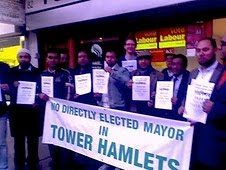
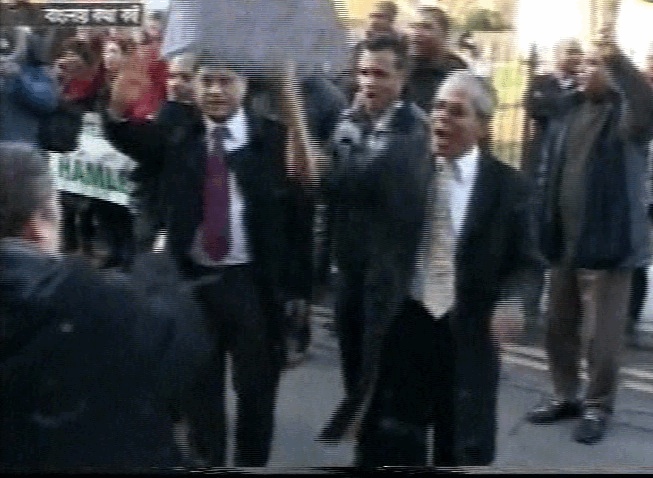



















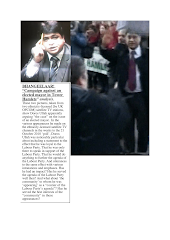


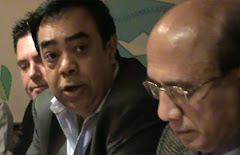


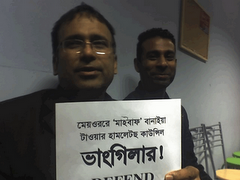
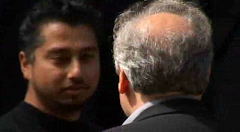
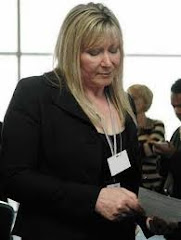
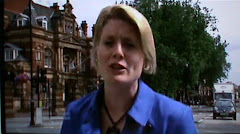
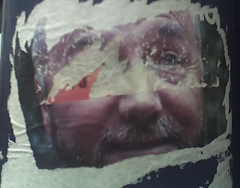

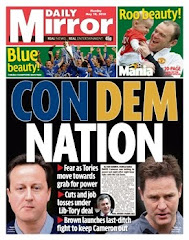
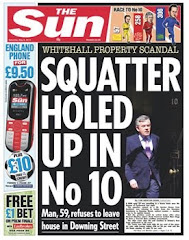
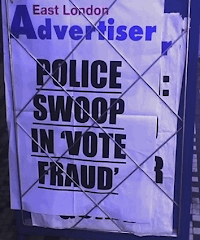
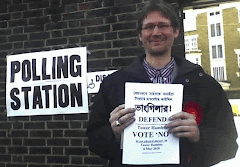
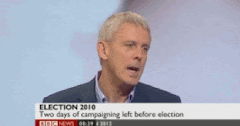

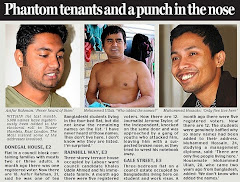



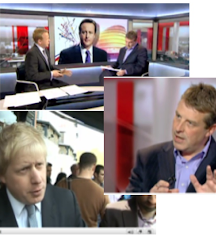
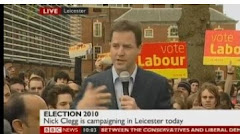
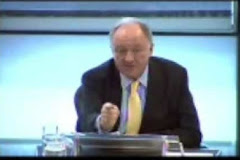
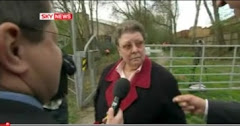

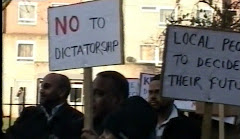
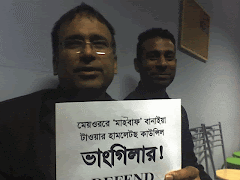

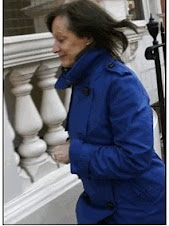
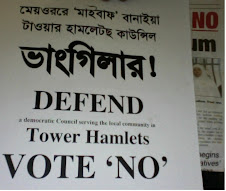
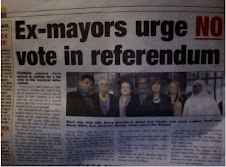
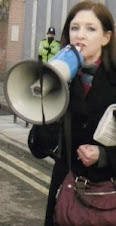
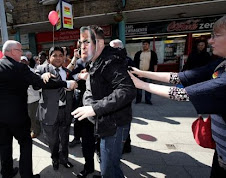

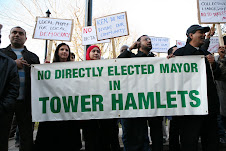
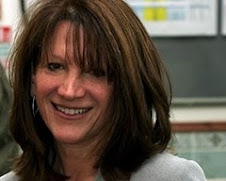
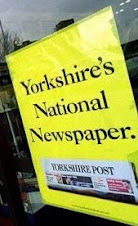

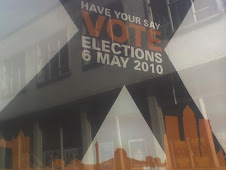
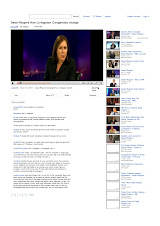
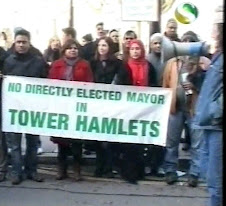
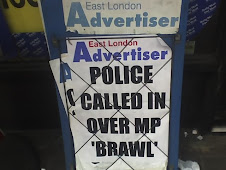
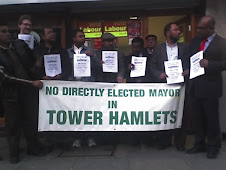
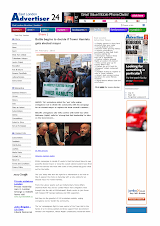
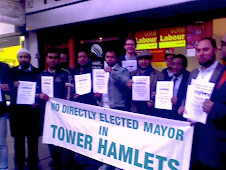
No comments:
Post a Comment